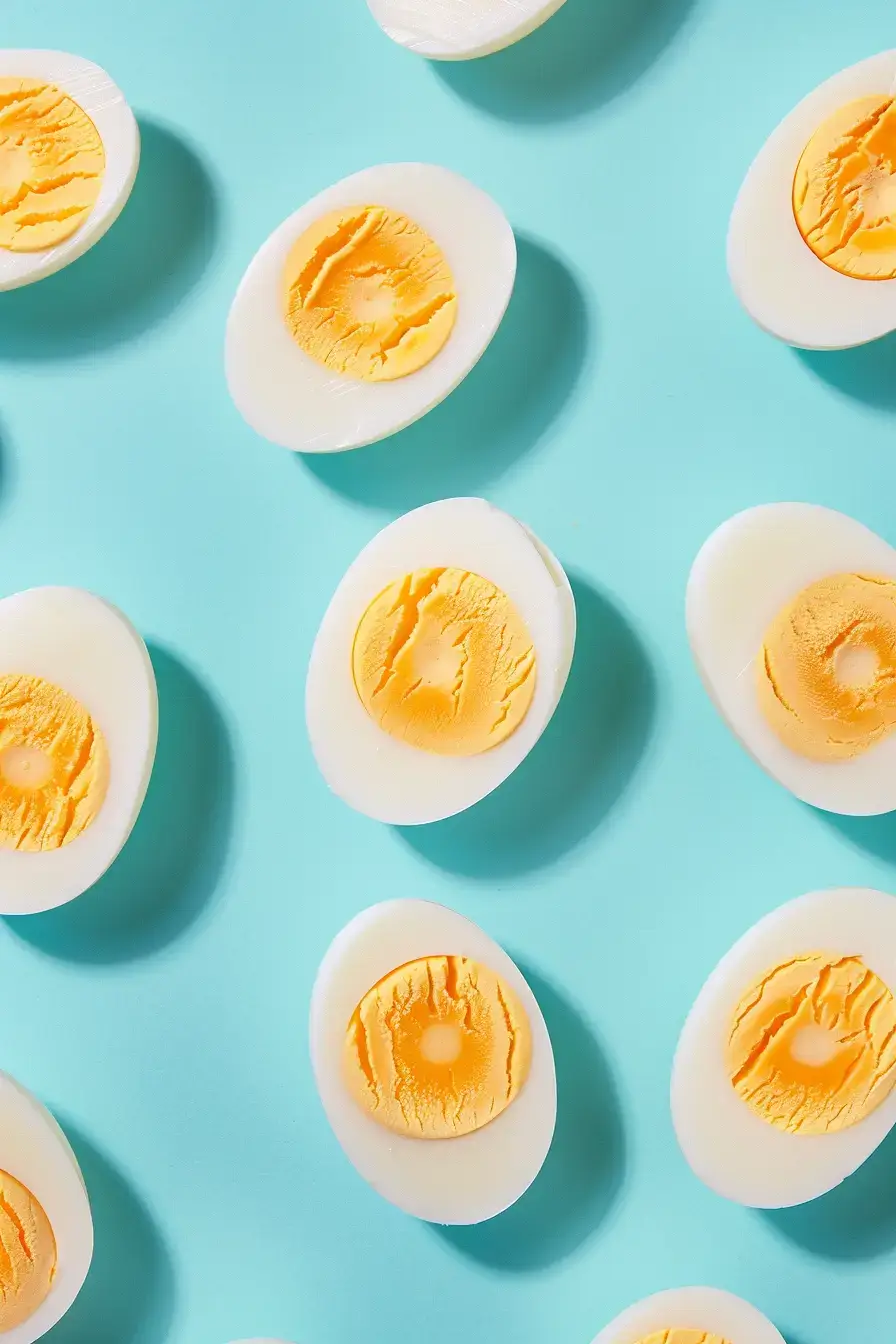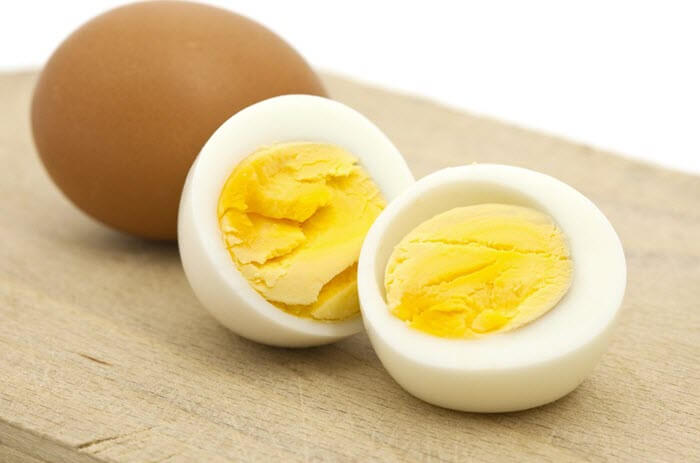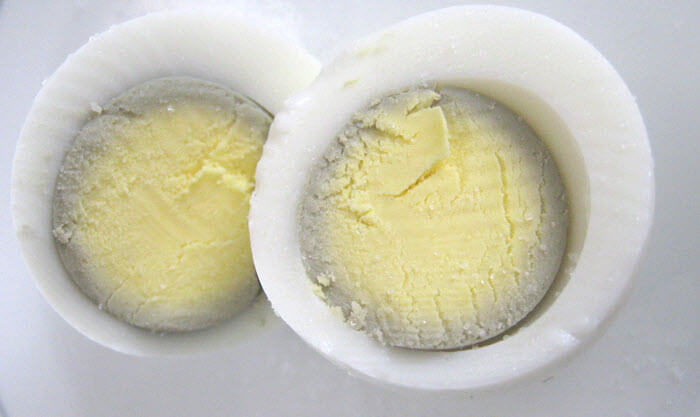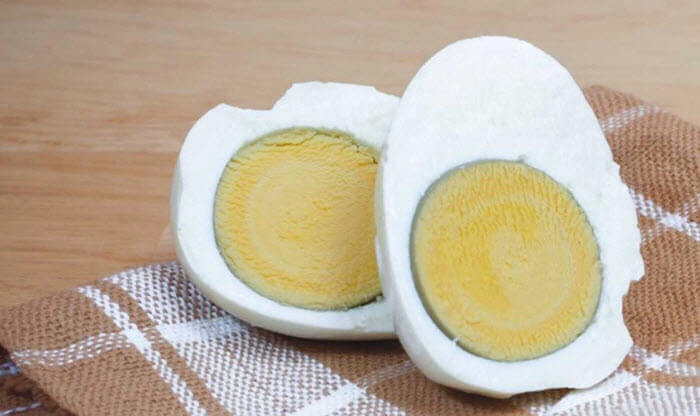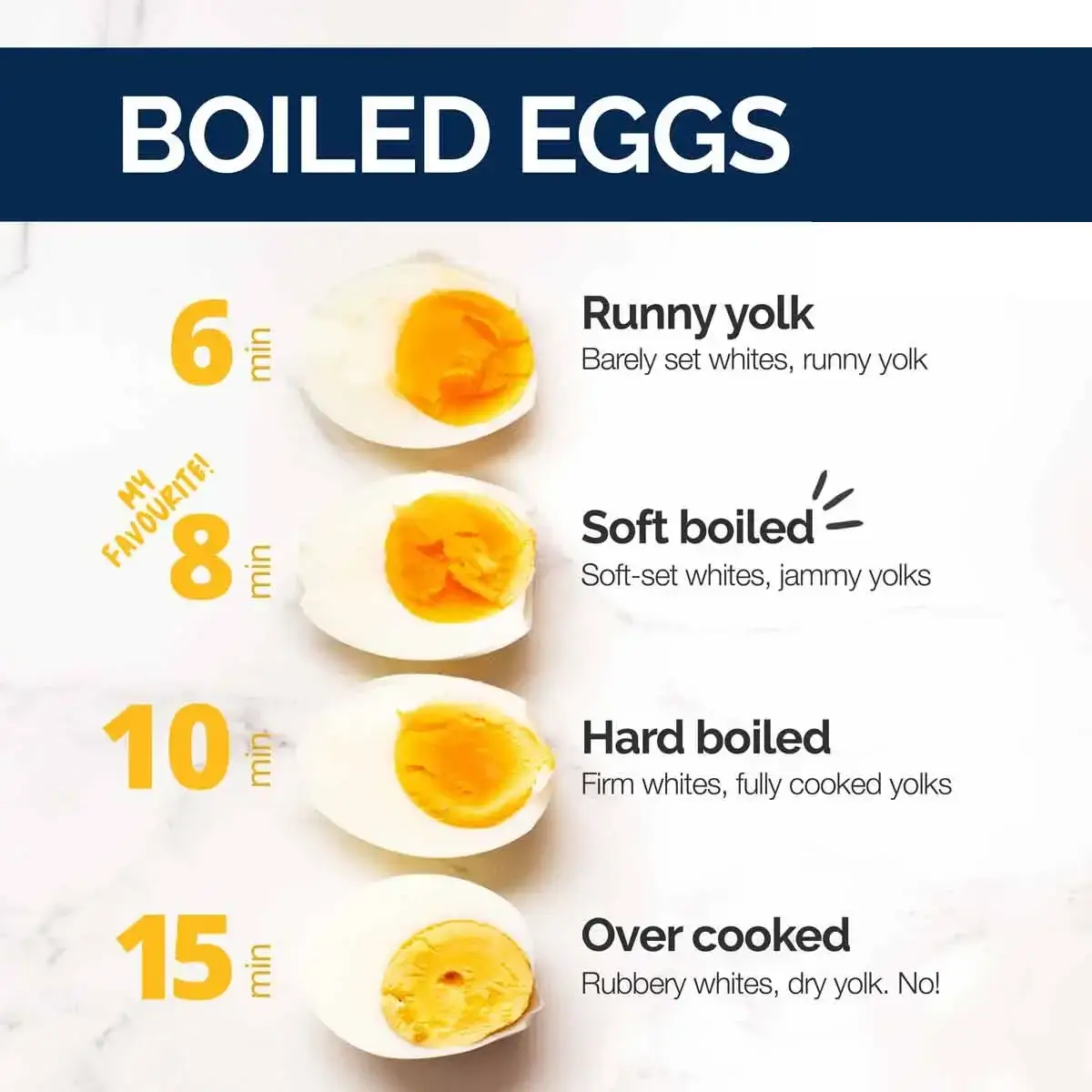Chrissy Teigen once said: “I can cook really complicated recipes, but it takes real talent to do the perfect egg.” sic.
Overcooked hard-boiled eggs don’t make the cut for perfection, but can they harm you? Let’s jump straight to it.
Table Of Contents
- 30-second Summary
- What Are Hard Boiled Eggs?
- What Does It Mean to Overcook Hard-boiled Eggs
- What Happens If You Overcook Hard-boiled Eggs
- Can You Eat Overcooked Boiled Eggs?
- How Long Are Hard-boiled Eggs Safe To Eat?
- What Do Hard Boiled Eggs Smell?
- Tips to Boil Eggs
- More FAQs About Overcooked Hard-Boiled Eggs
30-second Summary
- Overcooked eggs contain ferrous sulfide, which can be toxic. It’s best to avoid them to prevent food poisoning.
- Aim to boil your eggs for about 9-12 minutes for proper cooking.
- Overcooked eggs often have a green ring around the yolk.
- It’s best to cook your eggs properly and avoid raw, cracked, or dirty eggs. They may contain Salmonella.
- The awful smell of overcooked eggs is due to hydrogen sulfide.
- Store leftover boiled eggs in the fridge for up to a week for safety.
What Are Hard Boiled Eggs?
Hard-boiled eggs are typically chicken eggs cooked in boiling water until both the white and yolk firm up. They can also be made from other bird eggs.
After cooking, transfer the eggs into a bowl with cold water for about 10minutes. Moving to cold water will calm the eggs and stop the cooking process.
You can hard boil your eggs by steaming or coddling, depending on your preference. Additionally, you can use an egg timer to determine the duration it takes to hard boil your egg.
Now that we know what hard-boiled eggs are let’s talk about overcooking them.
What Does It Mean to Overcook Hard-boiled Eggs
Boil your eggs for about nine minutes for a firm yolk. Beyond twelve minutes, you’re overcooking them.
Eggs contain protein links. These links keep forming cross-links if you boil your egg for hours. This action gives the over-cooked egg a firm and rubbery texture.
What Does an Overcooked Egg Look Like?
Overcooked eggs usually have a green ring surrounding their yolk. Sometimes if you have cooked it for way too long, the entire yolk turns grey or green.
What Happens If You Overcook Hard-boiled Eggs
Overcooked boiled eggs often develop a green color due to a chemical reaction between sulfur in the egg white and iron in the yolk, forming ferrous sulfide [1]. This reaction typically occurs when eggs are exposed to high temperatures or cooked for an extended period, resulting in a greenish discoloration around the yolk’s edge.
You can tell if your boiled eggs are overcooked by looking for a greenish discoloration around the yolk, which indicates the formation of ferrous sulfide. While overcooked eggs are generally safe to eat, their texture and taste may differ from perfectly cooked eggs. It’s best to aim for the ideal cooking time to avoid overcooking.
Can You Eat Overcooked Boiled Eggs?
So, is it safe to eat overcooked hard-boiled eggs?
Research [2] shows that it’s best to avoid eating overcooked boiled eggs due to the iron rings that form on them. Although these rings indicate the presence of ferrous sulfide, consuming overcooked eggs in moderation is generally safe. However, eating too many at once could lead to food poisoning.
You may like:
How Long Are Hard-boiled Eggs Safe To Eat?
If you have leftover hard-boiled eggs from a party or family event, you can still enjoy them.
When appropriately stored, your leftover hard-boiled eggs can last for a week.
Make sure to keep them in the fridge to preserve their freshness.
One sign of bad eggs is their smell, they can sometimes have a distinct, unpleasant odor.
What Do Hard Boiled Eggs Smell?
Sulfur has a distinct rotten smell, which is why over-boiled eggs can have an unpleasant odor. The bad smell comes from hydrogen sulfide produced during overcooking.
You may like:
Tips to Boil Eggs
1. Start with cold water: Place the eggs in a saucepan and cover them with cold water. This helps prevent the eggs from cracking due to sudden temperature changes.
2. Bring to a boil: Bring the water to a rolling boil over high heat.
3. Let them sit: Once the water reaches a boil, remove the pan from the heat and cover it. Let the eggs sit in the hot water to finish cooking. The residual heat will gently cook the eggs.
4. Cooling: To stop the cooking process and make the eggs easier to peel, transfer them to an ice bath immediately after boiling. Let them cool for at least one minute, but ideally until they’re completely cool.
5. Peeling: To peel, gently tap the eggs on the counter to crack the shell and then roll them with your palm to loosen the shell further. Start peeling from the larger end, where there’s usually an air pocket.
6. For hard-boiled eggs, let them sit in the hot water for about 9-12 minutes, depending on your desired level of doneness. For soft-boiled eggs, aim for about 4-6 minutes.
Remember, the exact timing may vary based on the size of the eggs and your altitude, so you might need to experiment to find the perfect timing for your specific conditions.
More FAQs About Overcooked Hard-Boiled Eggs
Can I get sick from eating overcooked hard-boiled eggs?
While it’s rare, consuming overcooked eggs with high levels of hydrogen sulfide can potentially cause sickness. It’s best to avoid eating them excessively.
Can I reboil my eggs?
Yes, you can reboil eggs that have been refrigerated and are still safe to eat. However, reboiling may affect the egg’s texture and quality, so proceed with caution.
Will overcooking eggs destroy the proteins?
Overcooking eggs can make the texture rubbery due to increased protein linkages. It may also destroy some nutrients in the yolk.
Do hard-boiled eggs expire?
Yes, hard-boiled eggs have a shelf life of about one week when stored in the refrigerator. Avoid leaving them at room temperature for extended periods.
Can I eat raw eggs?
Consuming raw eggs carries a risk of Salmonella contamination. It’s generally safer to avoid eating raw, cracked, or dirty eggs.
Accidentally boiled eggs for an hour, what to do?
Eating one or two overcooked eggs occasionally is not a significant concern, but it’s better not to consume too many at once.
Final Words
Eggs are versatile and can be used in various ways in the kitchen. Paying attention to storage and cooking methods will help you enjoy this nutritious food safely.

